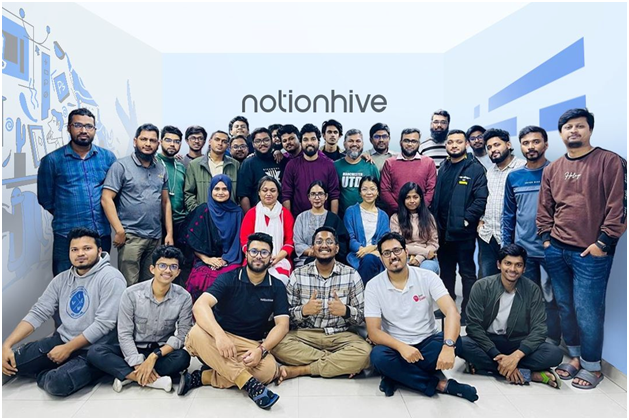
With Eid-ul-Azha still almost a week away, Samarai Cattle Farm on the periphery of Dhaka's Hatirjheel has sold 285 of their 300 cattle at prices ranging from Tk 50,000 to Tk 2 million. COURTESY
The coronavirus pandemic has a lot of dark sides as it continues its deadly path in Bangladesh. Curious and unexpectedly positive side-effects of the abrupt shifts in people's behaviour in response to the Covid-19 crisis are making themselves visible. Cattle trade, for instance, has offered one bright side.
With Eid-ul-Azha still almost a week away, Samarai Cattle Farm on the periphery of Dhaka's Hatirjheel has sold 285 of their 300 cattle at prices ranging from Tk 50,000 to Tk 2 million.
The impact of the coronavirus pandemic-induced lockdown on the farm has not been as severe as some may have feared. Online sales have picked up this year, with almost 60 percent of all orders being placed on the internet, nearly a 200 percent rise from 20 percent last year, according to its Manager MdShahed.
The picture is similarly encouraging at many of the better-known cattle farms around the capital.
"The sales began in June,” Shahed said. “Now, only a handful of animals remain unsold."
Cows weighing between 100 and 300 kgs went for Tk 425 per kg while those above 300 kg sold for a higher price, Shahed added.
The recent 'stringent' lockdown to contain the coronavirus pandemic drove many customers to buy directly from farms rather than the often overcrowded cattle markets.
Some of the reputed farms in Dhaka have been able to rattle through most of their stock. But many small-time and newer farms have concerns about whether they will be able to sell the sacrificial animals they have invested so much of their time and money in.
As Covid-19 infections surge across the country, buyers feel more comfortable purchasing cattle from the farms at their convenience, rather than from the often overcrowded markets.
Sellers said some customers come to the farm to pick out their animal of choise after seeing ads online, while others buy directly through the online service after browsing the photos.
Smaller cattle are more in demand than the larger ones, sellers add.
But customers are finding the price of sacrificial animals at farms to be a bit higher than it was last time. Farmers have set the price for cattle weighing up to 400 kg between Tk 425 and 450 per kg. Cattle weighing over 400 kgs are being sold at Tk 500-900 per kg.
Md Shahed, the manager of 10-year-old Samarai Cattle Farm, blamed a hike in the price of fodder for the higher prices of cattle.
“It takes one to two-and-a-half years to raise a cow for the Eid sacrifice,” he said. “But an unusual increase in the price of fodder has made raising cattle more costly, which is why prices are a bit higher.”
Sohrab Hossain, a customer from Moghbazar, said: "In the last few days, I went to the farms of Sadek Agro, SA Corporation and Al Madina Agro Farm, and negotiated the price of cattle, which are being sold by live weight. I felt the price was a bit high."
Md Imran Hossain, owner of Sadek Agro Farm in Mohammadpur's Beribadh, Dhaka’s largest animal farm, said they had sold 1,300 of 2,200 Eid cattle as of Wednesday. Online sales are also higher than last year, according to him.
"Smaller cattle are selling faster but we had to spend more on larger cattle. If we fail to sell those before Eid, the farm will incur a loss.” Online sales are also greater than last year, he added.
Kazi Ferdaus, manager of Abdul Malek Agro Farm in Khilgaon’s Nandipara, said they invited potential customers to visit their farm after the pictures of their animals drew admiration on their Facebook page.
Cattle are being sold to the customers who visit the farm after seeing the animals on Facebook, said Ferdaus, adding that although more than 40 percent of the targeted animals were sold, they are still worried about meeting the sales quota.
Niaz Muhammad Sunny, managing director of Royal Ranch and Dairy of the Meradia area, said they want to sell at least 200 of the 300 cattle they have prepared for Eid.
"A lot of customers are visiting the farm after looking us up on Facebook. Already 80 of our cattle are booked."
Irfan Dewan, owner of Muksuda Dairy and Agro, of Dhaka's Shyampur region said, "We have a handful of cattle in our small farm and all of the animals were sold.”
But Imran Hossain, also the president of Bangladesh Dairy Farm Association, reckons that it will not be possible to achieve this year’s target despite the 9.9 million animals sold last Eid.
He pointed to the financial strain on people due to the pandemic and the apartment owners’ disinterest in keeping cattle nearby as two major obstacles.
Dr Debashis Das, director of the Department of Livestock Services, or DLS, said that 11.9 million animals were prepared ahead of Eid this season.
As of Tuesday, 184,000 animals were sold across 1,778 digital platforms organised by different government and non-government initiatives, the director said.
Like last year, Chattogram division sold the most sacrificial animals.
Zeenat Sultana, a deputy director of DLS, said there are 6,98,115 livestock farms across the country. Of these, 92,821 are in the Dhaka division and 4,619 in the district.
For this year's festival, more than 100,000 animals are expected to be sold through a government-launched digital platform: (https://digitalhaat.net/), which will allow customers from across the country to maintain public health guidelines amid the pandemic.












0 Comments